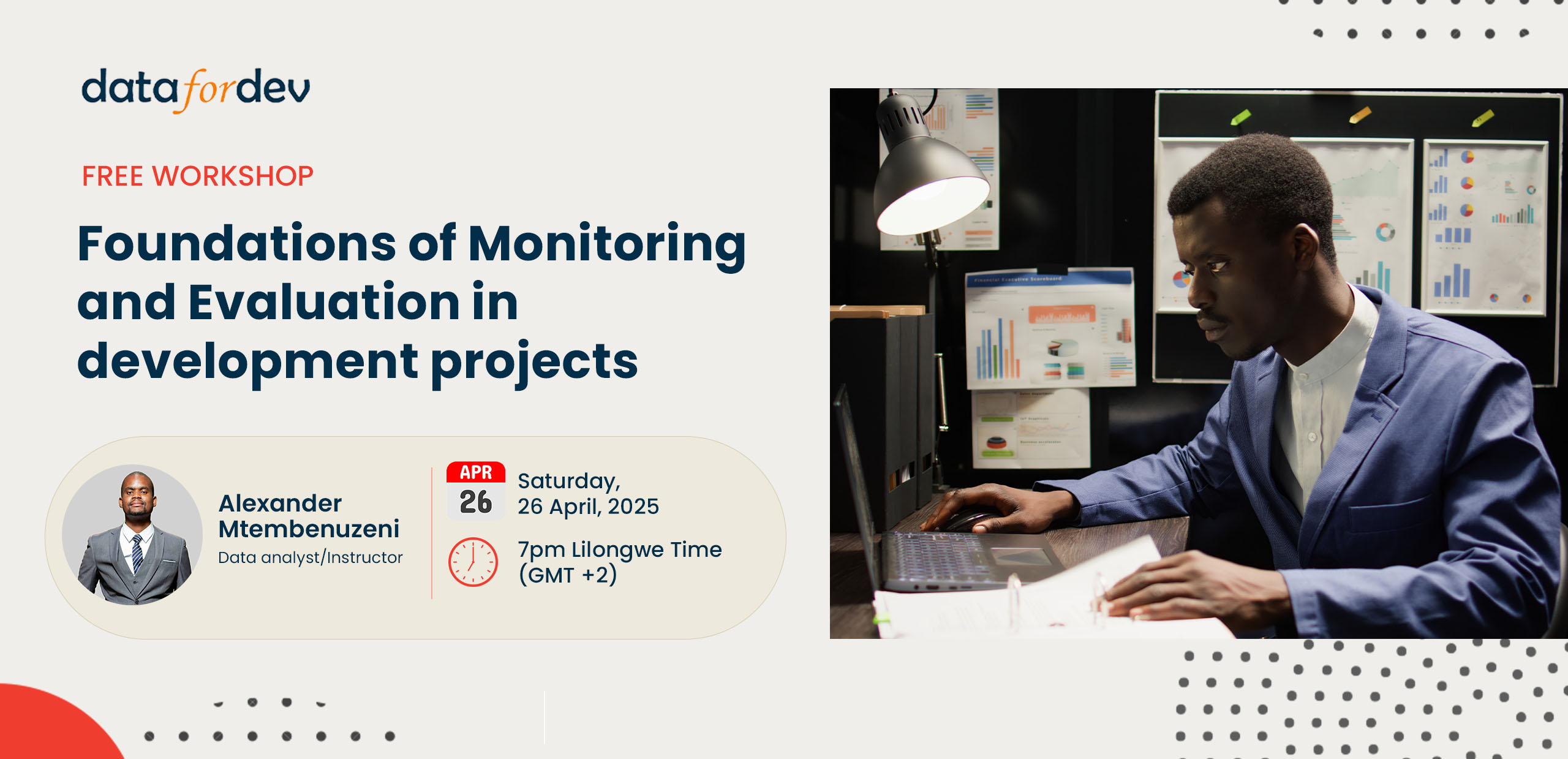Key Learning Outcomes:
By the end of this workshop, participants will be able to:
- Understand the basic concepts of Monitoring & Evaluation.
- Differentiate between monitoring and evaluation processes.
- Develop a simple M&E plan with clear objectives, indicators, and roles.
- Select appropriate indicators and data collection methods.
- Analyze basic M&E data and apply findings to improve project outcomes.
Course outline
1. Introduction to Monitoring and Evaluation
- Definition of Monitoring and Evaluation
- Differences between Monitoring and Evaluation:
- Importance of M&E for accountability, learning, and decision-making
2. The M&E Cycle
- Overview of the four phases of the M&E cycle
- Importance of integrating M&E from the beginning of a project
3. Developing an M&E Plan
- Components of an M&E Plan
- How to use frameworks like the Logical Framework Approach (LogFrame) or Theory of Change in planning
4. Key Indicators & Data Collection Methods
- Types of indicators: input, output, outcome, impact
- Criteria for selecting good indicators (SMART criteria: Specific, Measurable, Achievable, Relevant, Time-bound)
- Common data collection methods (surveys, interviews, focus groups)
5. Analyzing Data & Using Findings
- Basic steps in analyzing M&E data
- How findings are used for improving projects or making strategic decisions
Who should attend
- Aspiring M&E professionals
- Project managers and officers
- Development professionals
- Program staff involved in project activities
- NGO and non-profit employees
- Consultants working in project management or M&E

